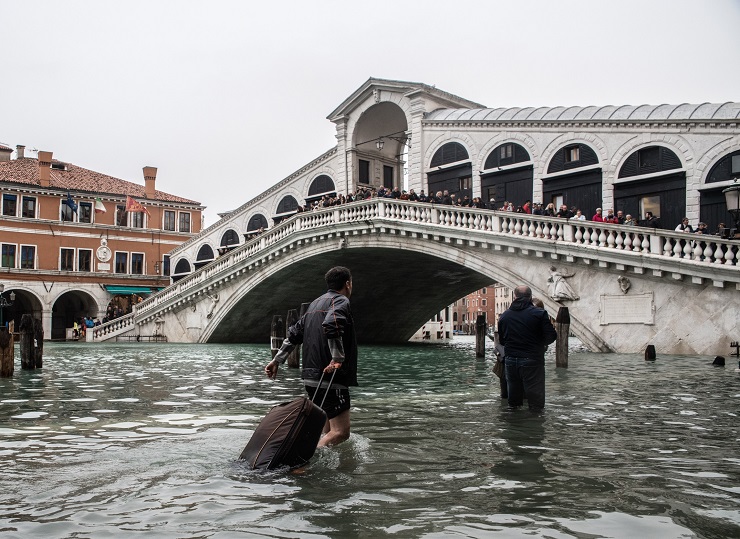Governments across the globe have been as ineffective in meeting the needs of their citizens as Italy was in preventing Venice, its crown jewel, from flooding. In 2003, as water levels began to rise across the globe, the Italian city’s government initiated an ambitious engineering project to protect its hundred plus islands from flooding. Sixteen years later, cost overruns have allowed the waters to rise to a record six feet, forcing businesses to close, while tourists see only a unique phenomenon.
Also in 2003, the US invaded Iraq, supposedly to bring democracy and progress, however, in 2019 protesters are attacking the green zone, built to house the occupying government, which eventually turned it over to the country’s new Sunni rulers, who are closely allied with Shia Iran.
Iraqis are as angry as post-civil war Lebanese, or Czechs ’liberated’ from Communism, both of which erroneously believed that businessmen would ‘get things done’. In Lebanon, where hospitals are being forced to close for lack of medicines, a father of three suggested that so many of his countrymen are unemployed that they figure they might as well be in the street. As for the Czechs, in 1989 they dumped communism by pulling off ‘a Velvet Revolution’ and now they are out on the streets, having realized that millionaires do not govern for the people. Similarly, the retired shipyard workers in neighboring Poland who peacefully replaced a Communist government with a liberal one under union leader Lech Walesa, now oppose a nationalist-religious government. Together with Hungary’s Viktor Orban, it refuses to accept Middle Eastern and African refugees, determined to preserve the country’s religious heritage and ‘European way of life’ (sic) ignoring European Union decisions.
Currently, sixty-nine percent of French citizens back the Gilets Jaunes, who came together a year ago to protest a small hike in the gasoline tax. Now they have inspired Iranians to protest a similar government decision (all the more justified that Iran is an oil producing country).
Although Africa’s modernization has been breathtaking, citizens across the continent accuse governments of right and left of catering to the upper classes. Not to mention Hong Kong, a former British colony that was returned to China in 1997 under a system known as ‘one country, two systems’. Its youth are now coming of age fearing they may be forced to trade their Western system for that of the mainland. They are backed by a US desperate to remain the world’s strongest economy. Just as truly, in order to safeguard ‘Socialism with Chinese Characteristics’, Beijing must avoid caving in to its capitalist outpost,
Ever since the end of World War II, Washington has encouraged third world populations to rise up against governments that fail to tow the US line. It’s been doing so longest in what it charitably calls its ‘back yard’, whose language is relatively easy to learn, its strong men, upon graduating from the ‘School of the America’s’, readily joining the US-led Organization of American States (OAS). Notable exceptions have been Cuba, Nicaragua, Venezuela and Bolivia. Trained by Hugo Chavez, Venezuela’s Nicholas Maduro defeated an attempted right-wing coup, (while Brazil fell for a neo-fascist who claims the oxygen generated by the Amazon forest does not belong to a world fighting climate change).
At the other end of the spectrum, after fourteen years of lifting up his people, Bolivia’s’ indigenous president, Evo Morales left himself open to accusations of election-tampering (the same that are leveled against all long-standing world leaders) and was forced to flee to Mexico to save his life. Meanwhile, Columbians are out on the street en masse protesting living conditions, while Brazilians on Northeast beaches use their bare hands and simple spades to scrap away oil from ocean spills. This raises the uncomfortable thought that humans may be no more able to control nature than they were 60,000 years ago, when they began the trek from Africa that peopled the planet.
Maybe 60,000 years is all we were entitled to.
Deena Stryker is a US-born international expert, author and journalist that lived in Eastern and Western Europe and has been writing about the big picture for 50 years. Over the years she penned a number of books, including Russia’s Americans. Her essays can also be found at Otherjones. Especially for the online magazine “New Eastern Outlook”.

